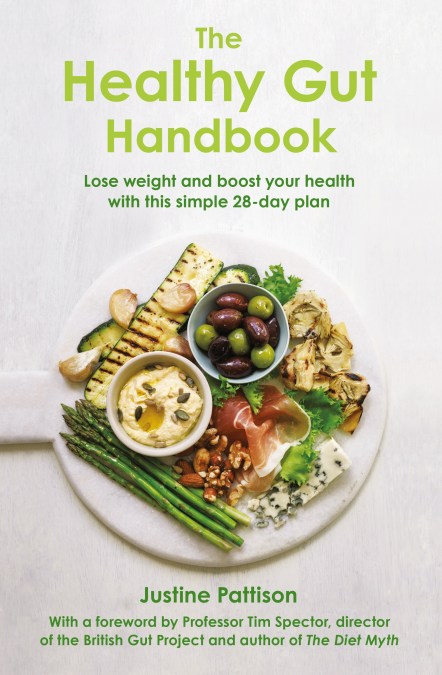The Vegan’s Guide To Gut Health

Executive Summary

Navigating gut health as a vegan can seem daunting, but it’s achievable with the right knowledge and choices. This guide dives into the crucial aspects of gut health for vegans, addressing common concerns and offering practical advice. From understanding the intricate relationship between diet and gut bacteria to exploring the benefits of prebiotics, probiotics, and fermented foods, we’ll uncover the secrets to a thriving gut. You’ll also discover how to identify potential deficiencies and how to address them naturally, enabling you to flourish on a plant-based journey.

Introduction
As a vegan, you’re likely aware of the numerous health benefits associated with a plant-based diet. However, maintaining a healthy gut microbiome is often overlooked, despite its crucial role in overall well-being. A flourishing gut microbiome is teeming with diverse and beneficial bacteria, contributing to better digestion, enhanced immune function, and even improved mental clarity. This guide provides a comprehensive roadmap to optimizing gut health for vegans, emphasizing the critical link between diet and gut bacteria, the importance of prebiotics and probiotics, and the advantages of fermented foods.
Frequently Asked Questions
What is the gut microbiome, and why is it important for vegans?
The gut microbiome encompasses the trillions of bacteria residing in your digestive tract. It plays a vital role in digesting food, synthesizing vitamins, regulating the immune system, and even influencing mental health. Vegans, due to their dietary restrictions, may face a slightly different gut microbiome composition compared to omnivores. Understanding and nurturing this intricate ecosystem is essential for optimal health.
Do vegans need to supplement with B12?
Yes, vegans need to supplement with vitamin B12, as it’s primarily found in animal products. B12 is crucial for various bodily functions, including red blood cell production and nervous system health. Deficiency can lead to fatigue, anemia, and neurological problems.
How can I ensure I’m getting enough fiber on a vegan diet?
Fiber is an essential nutrient for gut health, promoting healthy digestion and supporting the growth of beneficial bacteria. Many plant-based foods are rich in fiber. Include plenty of fruits, vegetables, legumes, whole grains, and nuts in your diet to ensure adequate fiber intake.
The Importance of a Diverse Diet
A diverse diet is the foundation for a thriving gut microbiome. When you consume a wide variety of plant-based foods, you introduce a diverse range of nutrients and prebiotics, which fuel the growth of beneficial bacteria.
- Fruits and Vegetables: These are packed with fiber, vitamins, and antioxidants, promoting healthy digestion and supporting gut health. Prioritize a wide variety of colors and textures to diversify your intake.
- Legumes: Lentils, beans, chickpeas, and peas are excellent sources of protein, fiber, and prebiotics. These powerhouse foods contribute to a healthy gut environment.
- Whole Grains: Whole grains like brown rice, quinoa, oats, and barley are rich in fiber and prebiotics. Opt for whole grains over refined grains to maximize gut health benefits.
- Nuts and Seeds: These are packed with healthy fats, fiber, and prebiotics. Enjoy a variety of nuts and seeds like almonds, walnuts, chia seeds, flax seeds, and pumpkin seeds for optimal gut health.
The Power of Prebiotics
Prebiotics are non-digestible fibers that act as food for beneficial bacteria in your gut. They promote the growth of these beneficial microbes, contributing to a healthy gut microbiome.
- Inulin: Found in foods like onions, garlic, asparagus, and bananas, inulin is a type of prebiotic that supports the growth of beneficial bacteria like Bifidobacteria.
- Fructans: These are found in wheat, onions, garlic, and leeks. They promote the growth of diverse gut bacteria, contributing to a balanced microbiome.
- Resistant Starch: This type of starch is not digested in the small intestine but reaches the large intestine, where it serves as food for beneficial bacteria. It’s found in potatoes, legumes, and green bananas.
- Oligosaccharides: Found in foods like beans, onions, garlic, and chicory root, oligosaccharides are short-chain sugars that promote the growth of beneficial gut bacteria.
The Benefits of Probiotics
Probiotics are live microorganisms that, when consumed in adequate amounts, provide health benefits. These “good” bacteria help to balance the gut microbiome, promoting digestive health and supporting immune function.
- Yogurt: Look for plant-based yogurt containing live and active cultures like Lactobacillus and Bifidobacterium.
- Kombucha: This fermented tea drink contains a variety of beneficial bacteria, including Acetobacter and Lactobacillus.
- Sauerkraut and Kimchi: These fermented vegetables are rich in probiotics, supporting a healthy gut.
- Tempeh: This fermented soybean product is a good source of protein and probiotics, promoting a balanced gut microbiome.
The Importance of Fermented Foods
Fermented foods are foods that have undergone a process of microbial transformation. They are rich in probiotics and prebiotics, supporting a healthy gut microbiome and promoting digestion.
- Sauerkraut: This fermented cabbage is a good source of probiotics, fiber, and vitamins.
- Kimchi: This fermented Korean cabbage dish is rich in probiotics, antioxidants, and fiber.
- Miso: This fermented soybean paste is a good source of protein, fiber, and probiotics.
- Kombucha: This fermented tea drink is a good source of probiotics, antioxidants, and B vitamins.
Addressing Potential Deficiencies
While a well-planned vegan diet provides most essential nutrients, some deficiencies may arise.
- Vitamin B12: Since B12 is primarily found in animal products, supplementation is crucial for vegans.
- Iron: Vegans can obtain iron from plant-based sources like lentils, spinach, and tofu. However, supplementing with iron may be beneficial for some individuals.
- Calcium: Plant-based sources of calcium include leafy green vegetables, fortified plant milks, and tofu.
Conclusion
Optimizing gut health as a vegan is an attainable goal. By focusing on a diverse diet rich in prebiotics and probiotics, embracing fermented foods, and addressing potential deficiencies, you can cultivate a flourishing gut microbiome that supports overall well-being. Remember, a healthy gut is the foundation for a vibrant and energized life.